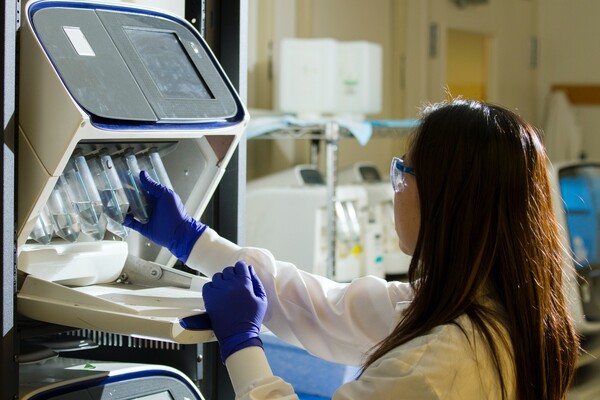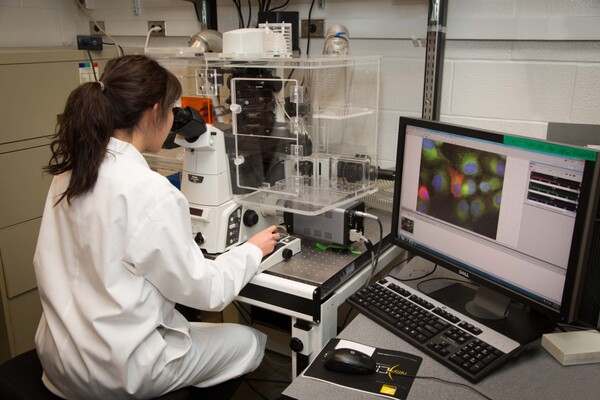
Main Second Level Navigation
Breadcrumbs
Biochemistry
MSc & PhD
Within a diverse and inclusive cluster of faculty and students, the Department of Biochemistry is a leader in its field.
Dedicated to training the next generation of scientists and leaders, our students are supported by world-renowned faculty who make significant research contributions in key areas - from signal transduction and regulation, to molecular medicine, to gene expression and development, and everything in between.
Our students tackle some of the most pressing and fundamental questions in biochemistry - from decoding the complexities of genome biology to pioneering breakthroughs in biomolecular structure, drug discovery, and infectious disease. With access to world-class facilities, state-of-the-art instruments, and cross-disciplinary mentorship, our trainees are at the forefront of discovery and innovation.
Our rotation system is a key feature of our training that allows newly admitted students to experience 3 different labs before deciding on a "best fit" thesis lab. This allows students to explore the breadth and depth of the research conducted and find the ideal learning environment to succeed.
Our Programs

In addition to completing a thesis, students take 1.5 FCE*:
- BCH 2020Y (Seminar Course in Biochemistry, 1.0 FCE),
- BCH 2101H (Scientific Skills for Biochemists, 0.25 FCE) and one
- Elective (0.25 FCE).
Students successfully finish this program in 2 years.

In addition to conducting independent and original research that will form their thesis, students complete 2.0 FCE:
- BCH2020Y (Seminar Course in Biochemistry, 1.0 FCE);
- BCH2101H (Scientific Skills for Biochemists, 0.25 FCE);**
- 0.75 FCE in electives.
Typically, students successfully complete this program in 6 years.
Alumni Profile

April Pawluck, PhD
I completed my doctoral studies in Biochemistry and then continued my research into the mechanisms of CRISPR-Cas systems, as a postdoctoral fellow at the University of California Berkeley.
I worked as a journal editor for four years and reviewed hundreds of submitted manuscripts across the biological sciences, mediating the peer review process and making decisions about which papers to publish.
Now, I use my perspective as a journal editor to help scientists write better grants and papers at the Arc Institute. In my spare time, I do freelance scientific editing with a group of former journal editors at Life Science Editors and I lead workshops on scientific writing and publishing.
Potential Career Paths
In 2022, the School of Graduate Studies (SGS) tracked the career outcomes of 5,128 PhD students who graduated from the University of Toronto between 2016 to 2021. The data below is from 87 biochemistry PhD graduates.
Positions
Some examples of the positions our biochemistry graduates held included:
- Postdoctoral fellowships
- Biotechnology and pharmaceutical jobs
- Hospital-based jobs
Employers
Some examples of employers for whom our biochemistry graduates worked included:
- The University of Toronto
- The Hospital for Sick Children
The chart below shows a percentage breakdown of the various sectors in which our biochemistry PhD graduates worked at the time the survey occurred.
Main Employment Sectors of Biochemistry PhD Graduates
Chart data
| Post-Secondary Education | Private Sector | Public Sector | Charitable Sector | Individual Sector | Info Not Public/Other |
|---|---|---|---|---|---|
| 42.5 | 41.4 | 2.3 | 1.1 | 1.1 | 11.5 |
By the Numbers
Department of Biochemistry
*Full course equivalent. A typical 0.5 FCE is over one term (13 weeks), meeting 1-2 times per week. A typical 1.0 FCE is over two terms (26 weeks), meeting 1-2 times per week.
** In the event the student has completed this course, the student will need to take another course that should be approved by the Graduate Coordinator.